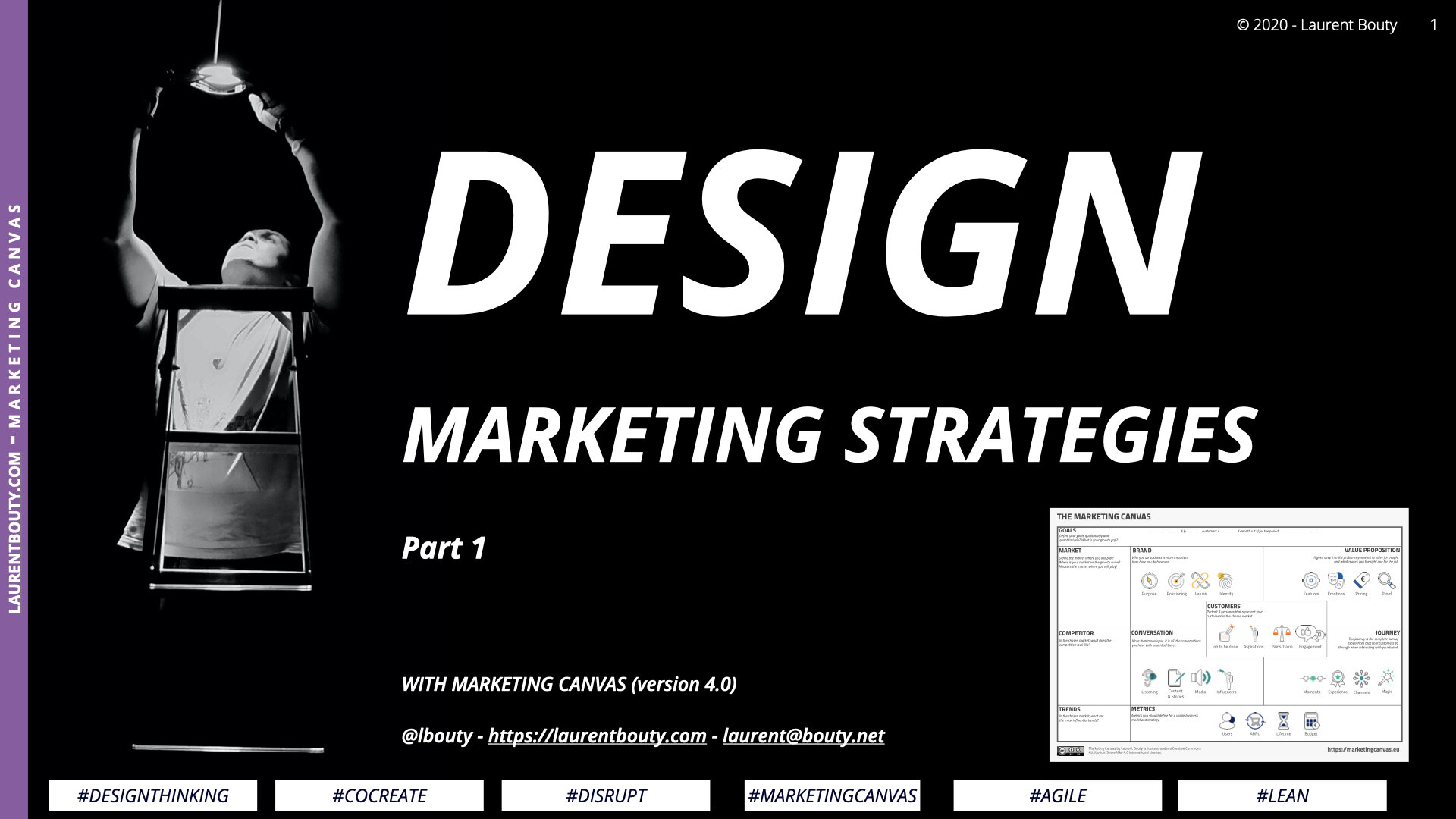In a nutshell
The Marketing Canvas methodology emphasizes 'ASPIRATIONS' as a critical dimension in understanding customers, which goes beyond their basic needs and wants to uncover their deeper dreams and ideal visions of their lives. Recognizing these aspirations can guide effective brand positioning and build stronger customer relationships. For example, a fitness brand that acknowledges its customers' aspirations for a healthier lifestyle, self-confidence, or marathon participation can create a more profound connection, and an environmentally-conscious brand that aligns with its customers' sustainability aspirations can foster a loyal customer base.
Complementing the 'Job To Be Done' concept, 'Aspirations' provide insights into customers' utopian visions, enabling brands to offer products or services that not only resolve problems but also help customers realize their ideals. Hence, understanding customer aspirations can significantly contribute to achieving business goals, including building customer relationships, differentiating the brand, and driving growth and profitability.
In the Marketing Canvas
The Marketing Canvas is a powerful tool for entrepreneurs and non-marketers to build a robust marketing strategy. It consists of six meta-dimensions, each with four sub-dimensions, for a total of 24 sub-dimensions defining your Marketing Strategy. One of these sub-dimensions is ASPIRATIONS, which falls under the CUSTOMER meta-dimension.
How to use it?
The Marketing Canvas provides a structured approach to understanding and formulating a marketing strategy. One of the key aspects it highlights is the role of 'ASPIRATIONS' in understanding customers. Let's delve a bit deeper into this concept and see how we can apply it.
The term 'ASPIRATIONS' refers to what the customers hope to achieve, their dreams, ideals, or even the perfect vision of their life. This dimension goes beyond the basic needs and wants of the customer, touching upon their deeper, often emotionally-charged desires. Understanding these aspirations can provide valuable insights into how to position your brand or product.
Aspirationals are happy shoppers and they see brands as badges of their own identities. They expect brands to lead with their values and meet higher standards for health, safety, fairness and social impact in ways that drive progress for people and positive impact for the world.[2]
For instance, consider a fitness brand. On the surface, customers want products or services that will help them get fit. However, their underlying aspiration could be to achieve a healthier lifestyle, gain self-confidence, or even to be able to participate in a marathon. If the brand understands and aligns with these aspirations, it can create a much stronger connection with its customers.
Understanding customer aspirations also plays a crucial role in brand positioning. Many customers today do not just buy products or services; they buy into a brand's values and mission. For instance, consumers who are conscious about the environment might prefer to purchase from a brand that demonstrates commitment to sustainable practices. These consumers aspire to contribute to environmental sustainability, and by aligning with this aspiration, a brand can gain a loyal customer base.
Therefore, getting to know your customers' aspirations is not just about selling a product or service. It's about understanding their dreams, ideals, and utopias, and seeing how your brand can fit into that picture. It's about aligning your value proposition with the values of your customers, and contributing towards the realization of their utopia.
Aspirationals are defined by their love of shopping, desire for responsible consumption, and their trust in brands to act in the best interest of society [1]
It's important to mention here that 'Job To Be Done' and 'Aspirations' are complementary concepts. 'Job To Be Done' focuses on understanding the problem that the customer is trying to solve, while 'Aspirations' focuses on understanding the customers' ideal vision of their life. By understanding both, you can create a product or service that not only solves a problem but also helps the customer move closer to their utopia.
Examples
Example 1: Patagonia
Patagonia, the outdoor clothing and gear company, has an audience whose aspirations go beyond just having quality outdoor clothing. Their customers aspire to protect the environment, which is why Patagonia's commitment to sustainability, ethical sourcing, and environmental activism resonates with them. Patagonia's alignment with these aspirations has helped them cultivate a highly loyal customer base.
Example 2: Tesla
Tesla's customers are not just buying a car; they are buying into a vision of a sustainable, technologically advanced future. Customers' aspirations here include reducing their carbon footprint, being part of cutting-edge technology, and the status associated with owning a Tesla. Elon Musk understood these aspirations and built Tesla's brand around them.
Example 3: Dove
Dove, a personal care brand, understood that their customers aspired to real, authentic beauty rather than the unattainable standards often portrayed in the media. Their "Real Beauty" campaign resonated deeply with customers worldwide, helping the brand build a strong emotional connection with its audience.
Question
Consider rating your agreement with the following statements on a scale from -3 (completely disagree) to +3 (completely agree):
"You have clearly identified consumers' aspirations for improving themselves (personal values)." A score closer to +3 suggests that you have a strong understanding of your customers' personal aspirations and have effectively incorporated this understanding into your marketing strategy. If your score is closer to -3, it implies that there's room for improvement in understanding and integrating your customers' personal aspirations.
"You have clearly identified consumers' aspirations for improving the world around them (societal values)."
A positive score signifies that your brand aligns well with your customers' societal aspirations, which can foster deeper customer connections. On the other hand, a negative score suggests a potential disconnect between your brand and your customers' societal aspirations, indicating a need to reassess your brand's societal impact and how it is communicated.
"You have clearly identified consumers' aspirations for improving the world around them (environmental values)."
A score leaning towards +3 suggests that you're effectively aligning with your customers' environmental aspirations, which is critical given today's increased focus on sustainability. A score near -3, however, suggests a need to enhance your understanding of your customers' environmental aspirations and perhaps to reconsider your brand's environmental impact.
If your scores are low, consider conducting more customer research to understand their aspirations better. Remember, the goal isn't just to understand these aspirations but to integrate them effectively into your marketing strategy, product development, and brand positioning. This integration can contribute significantly to building stronger customer relationships and enhancing brand loyalty.
Sources
https://blog.globalwebindex.com/trends/why-aspirational-consumers-matter/
Report: https://globescan.com/five-human-aspirations-and-the-future-of-brands/
"Start with Why: How Great Leaders Inspire Everyone to Take Action" by Simon Sinek
"Building a StoryBrand: Clarify Your Message So Customers Will Listen" by Donald Miller





































